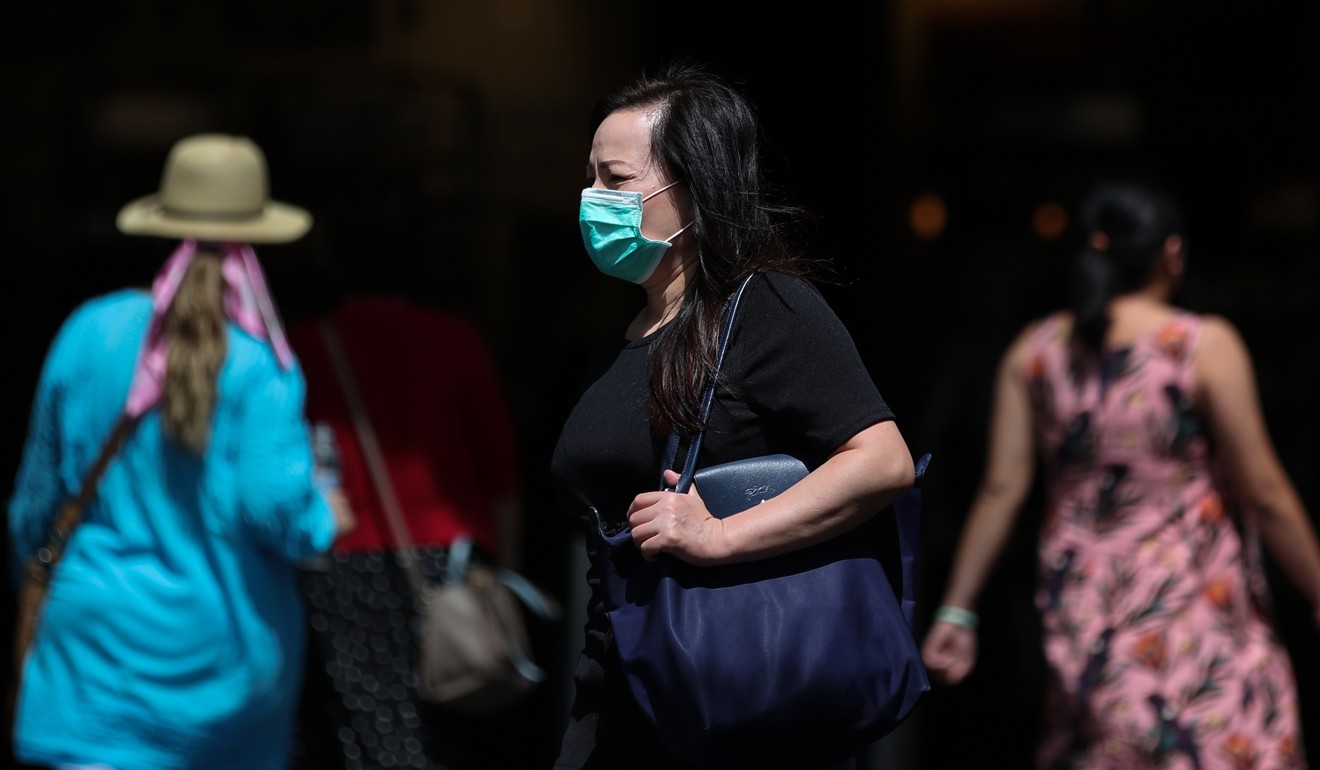
Australia’s coronavirus cases rise, even as Scott Morrison’s pandemic plan draws praise
- The country was among the first to bar travellers from China and is treating the outbreak as a pandemic, against the advice of the World Health Organisation
- But a spike in infections, caused by local transmissions, is exposing the limits of the prime minister’s efforts to contain the outbreak

When it came to halting the spread of Covid-19, Australia seemed to have the upper hand. The country was among the first to ban travel from China on February 1, maintaining the restrictions in the following weeks despite pressure from universities that rely on Chinese students to fund the country’s A$35 billion (US$23 billion) international education industry.
Prime Minister Scott Morrison last week also announced his government was treating the coronavirus outbreak as a global pandemic, defying the World Health Organisation’s reluctance to paint the outbreak in such stark terms.
After being accused of dithering over catastrophic bush fires in December and January due to scepticism of climate change, Morrison drew cautious praise for taking decisive action to tackle the health crisis.
“This time around, Australia’s prime minister is comparatively ahead of the game,” Richard Glover, a broadcaster with the Australian Broadcasting Corporation, said in a column published this week in The Washington Post. “He has discovered a taste for science – and for action.”

But Australia’s handling of the outbreak no longer looks so sure-footed, amid a sudden spike in cases that has prompted authorities to further tighten border controls and sent shoppers racing to clear the shelves of essential goods such as toilet paper.
“There has been a shift here in Australia with people starting to demonstrate fear-driven responses such as stockpiling toilet paper and hand sanitiser,” said Erin Smith, an associate professor in disaster and emergency response at Edith Cowan University in Perth.
“We know that the antidote to fear is action, so we as a nation are currently trying to provide Australians with clear actions to prepare themselves and their families so that they feel safer in light of the looming pandemic,” Smith said.
After holding steady for weeks at fewer than two dozen cases – all of them travellers to China or returning passengers from the virus-stricken Diamond Princess cruise ship in Japan – Australia’s number of cases this week rose to about 60, including two deaths.
Nearly half the cases have been recorded in the state of New South Wales, where a Sydney high school closed on Friday after a 16-year-old student tested positive for Covid-19. Dozens of people have also been placed in isolation after five cases were confirmed at a nursing home in Sydney, including a 95-year-old resident who died on Tuesday.
The sudden rise in infections comes after health officials in the state on Monday confirmed the first case of community transmission in Australia, after a 53-year-old health worker who had not recently travelled overseas tested positive for the virus.
Morrison on Friday announced A$1 billion in funding, shared between the federal and state governments, to deal with the outbreak.
“This is about Covid-19, this is about doing what we need to do, doing it swiftly so everyone can just get on with the job,” he said.
Earlier in the week, the government added South Korea and Iran to the country’s travel ban list and announced enhanced screening for visitors from Italy. The three countries have been the worst hit outside China, where the virus was detected late last year, with about 13,500 combined cases. The disease has infected nearly 100,000 people and claimed more than 3,300 lives globally, most of them in mainland China.
Government officials, including the chief health officer, were also due to meet doctors and frontline medical staff on Friday to discuss the national response to the outbreak as some medical professionals expressed concerns about being unprepared to deal with a surge in patients.
Although Australia’s uptick in infections has exposed the limits of its measures to contain the coronavirus outbreak, the rapid spread within the country reflects the highly contagious nature of the virus more than any policy failures, according to experts.
Ian McKay, a virologist at the University of Queensland, said the travel bans had “bought time” for health authorities to prepare for the virus, but further infections were inevitable.
“Only a few cases of human-to-human spread in Queensland and New South Wales have occurred,” said McKay. “That will change in the coming weeks and months, not because Australia is unprepared, but because this virus is very good at what it does.
“How fast these outbreaks become larger and eventually nationwide is still in question,” he added.
Raina MacIntyre, a professor of biosecurity at the University of New South Wales, said that while the central government’s response had been “excellent and timely”, authorities had to grapple with numerous unanswered questions about Covid-19.
“At the start, we did not know about asymptomatic transmission and assumed it was like Sars, only transmitted during symptoms,” MacIntyre said.
“As such, most countries were only testing symptomatic high-risk return travellers or contacts initially. That is probably why we are seeing a surge in cases in the United States, Australia and several European countries – because some asymptomatic infections probably slipped through the net,” she said. “We now know that asymptomatic infection is possible, and quite common, which makes disease control more challenging.”
Still, Australia, which has still confirmed fewer cases than comparable countries such as the US and Britain, boasts some advantages when it comes to fighting the outbreak.
Abrar Ahmad Chughtai, a lecturer in international health at the University of New South Wales, said Australia would not escape the effects of a global pandemic, but could be less prone to a mass outbreak due to its “geographical position, preparedness level and advanced health system”.
“Australia was largely spared from many previous epidemics as well, for example Sars, the H1N1 pandemic and Ebola,” he said. “But more cases will definitely occur.”